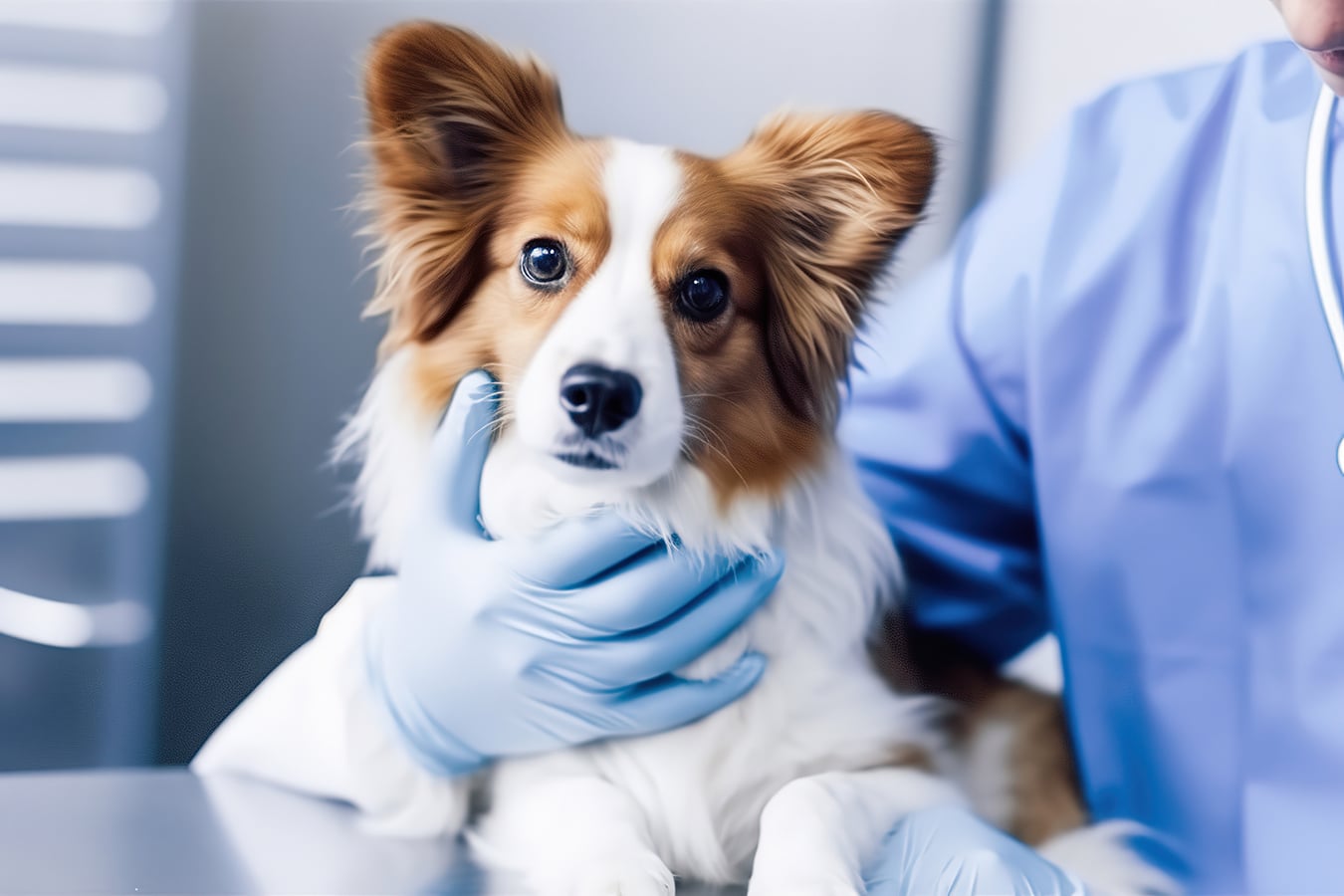
Diagnosis and Treatment for Pet Skin Disorder in Gallatin, TN
At Bluegrass Veterinary Hospital in Gallatin, TN, we understand that skin disorders in pets can be a source of discomfort and concern for both animals and their owners. Led by our experienced and compassionate team, we are dedicated to providing the highest standard of care for your furry friends. With a deep knowledge of both common and rare skin conditions in animals, our team offers comprehensive diagnostic and treatment services tailored to meet the unique needs of each pet. From dog dermatitis to cat skin allergies, we provide personalized care to ensure your furry friends receive the relief and healing they need.
What are the most common skin disorders in pets?
Among the various health concerns for pets, skin disorders are particularly common. Here are some of the most frequently encountered skin issues in dogs and cats:
- Allergic Dermatitis: Triggered by fleas, food, or environmental factors.
- Hot Spots (Acute Moist Dermatitis): Red, irritated lesions, often worsened by scratching.
- Ringworm: A fungal infection causing circular patches of hair loss.
- Seborrhea: Oily skin and dandruff, often seen in dogs.
- Mange (Caused by Mites): Causes severe itching, with Sarcoptic mange being highly contagious.
- Flea Allergy Dermatitis: Intense allergic reaction to flea bites.
- Yeast Infection: Commonly affects ears and paws, leading to itchy skin.
- Feline Acne: Appears as small black dots on the chin and lips in cats.
- Autoimmune Skin Disorders: Such as pemphigus, causing skin lesions.
Expect Kindness & Compassion
Comprehensive Veterinary Care for Your Four-Legged Family Member.
How are skin disorders diagnosed in animals?
Diagnosing skin disorders in animals involves a detailed and careful approach. Initially, veterinarians perform a comprehensive physical examination to check for visible signs like inflammation, lesions, or abnormal skin textures. If needed, skin scrapings are taken for microscopic examination, identifying issues like mange or fungal infections. Allergy testing, through blood tests or skin tests, may be conducted to pinpoint specific allergens. In more complex cases, biopsies are performed for a deeper analysis of the skin cells. Cultures from skin samples can also be grown to detect bacterial or fungal infections. Additionally, a review of the pet’s dietary and environmental history is essential to uncover any potential external factors contributing to the skin condition. This multifaceted diagnostic process ensures accurate identification and effective treatment of various skin disorders in pets.
Can skin disorders in pets indicate other health issues?
Yes, skin disorders in pets can often be indicative of underlying health issues. The skin, being the largest organ, often reflects the overall health status of an animal. For instance, certain skin conditions like excessive dryness, flakiness, or hair loss can be signs of hormonal imbalances, such as hypothyroidism or Cushing’s disease. Allergic reactions manifesting as skin problems could point towards dietary intolerances or environmental sensitivities. Autoimmune diseases may also present initially as skin disorders, characterized by unusual lesions or changes in skin texture. Infections on the skin, especially those that are recurrent or difficult to heal, might suggest an underlying immune system deficiency. Therefore, while a skin disorder may appear to be a superficial issue, it often requires a comprehensive health evaluation to rule out or address any deeper systemic conditions affecting the pet’s overall well-being. This interconnectedness underscores the importance of thorough veterinary examinations and holistic pet care.

What are the signs and symptoms of skin disorders in animals?
The signs and symptoms of skin disorders in animals can vary depending on the specific condition, but there are several common indicators that pet owners should be aware of. These symptoms often signal discomfort or pain in pets and may require veterinary attention:
- Excessive Scratching, Licking, or Biting: One of the most noticeable signs is a pet incessantly scratching, licking, or biting their skin, indicating irritation or itchiness.
- Redness or Inflammation: The skin may appear red or inflamed, a clear sign of irritation or a possible skin disorder.
- Hair Loss: Unusual hair loss or thinning fur in certain areas can be a symptom of a skin condition.
- Scabs or Crusts on the Skin: This can indicate infections or wounds from excessive scratching.
- Dry, Flaky Skin: Similar to dandruff in humans, dry and flaky skin can suggest a skin disorder.
- Bad Skin Odor: An unusual or foul odor from the skin is often a sign of infection.
- Changes in Skin Texture or Color: Thickened, hard, or discolored skin can be a symptom of chronic skin issues.
- Visible Bumps or Lumps: Bumps on the skin can be a sign of allergic reactions, infections, or in some cases, more serious conditions.
- Ear Problems: Issues such as ear discharge, odor, or excessive scratching at the ears can be related to skin disorders, especially in dogs.
- Behavioral Changes: Changes in behavior, such as increased irritability or lethargy, can sometimes be associated with the discomfort caused by skin disorders.
Recognizing these signs early and consulting with a veterinarian can help diagnose and treat skin conditions in pets, ensuring their comfort and health.
Transform Your Pet’s Skin Health
Addressing your pet’s skin health is vital for their overall well-being. Our dedicated veterinary team in Gallatin, TN, is here to provide comprehensive care and effective treatment for all types of skin disorders. Don’t let your pet suffer in silence – reach out to us and schedule a consultation. Together, we can work towards restoring your furry friend’s comfort and health.
